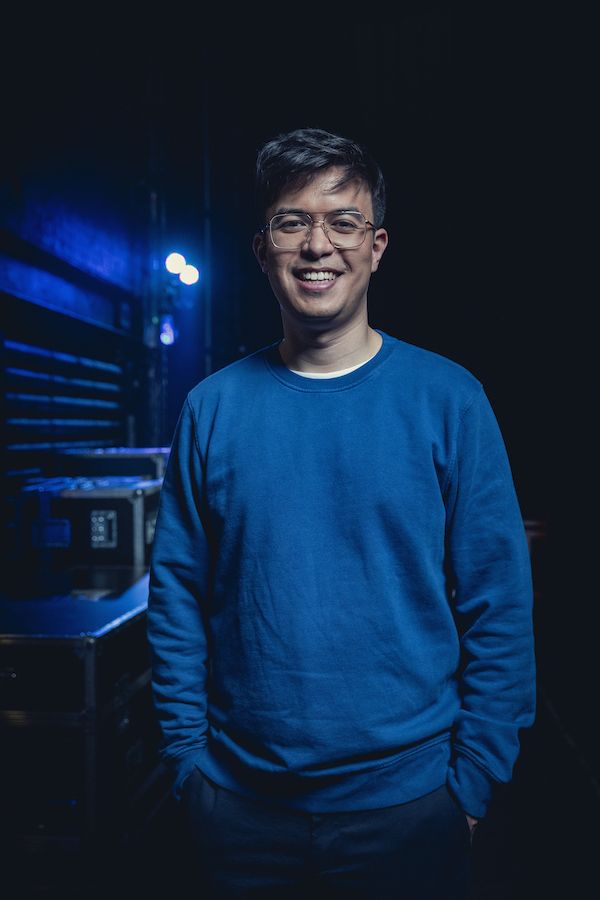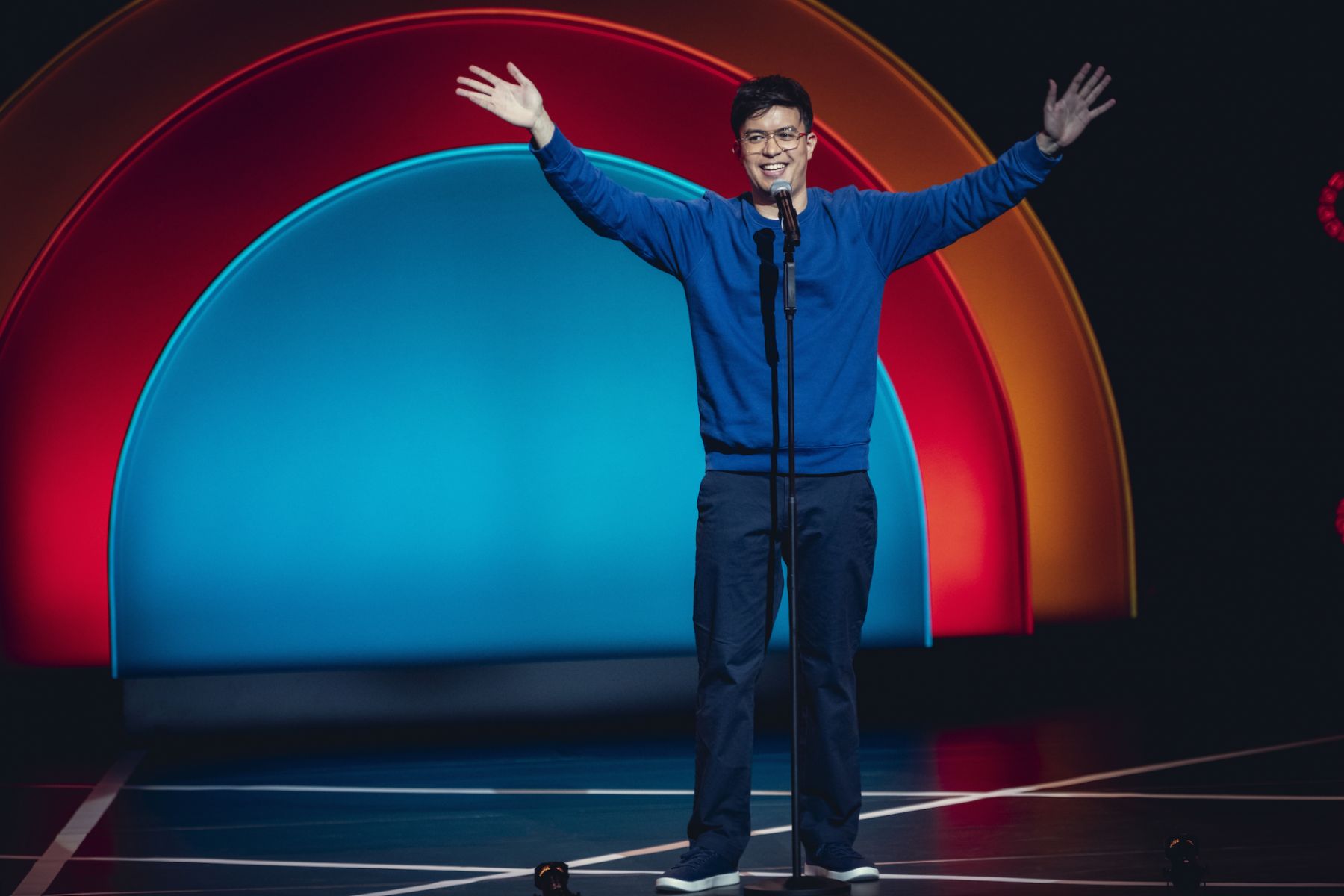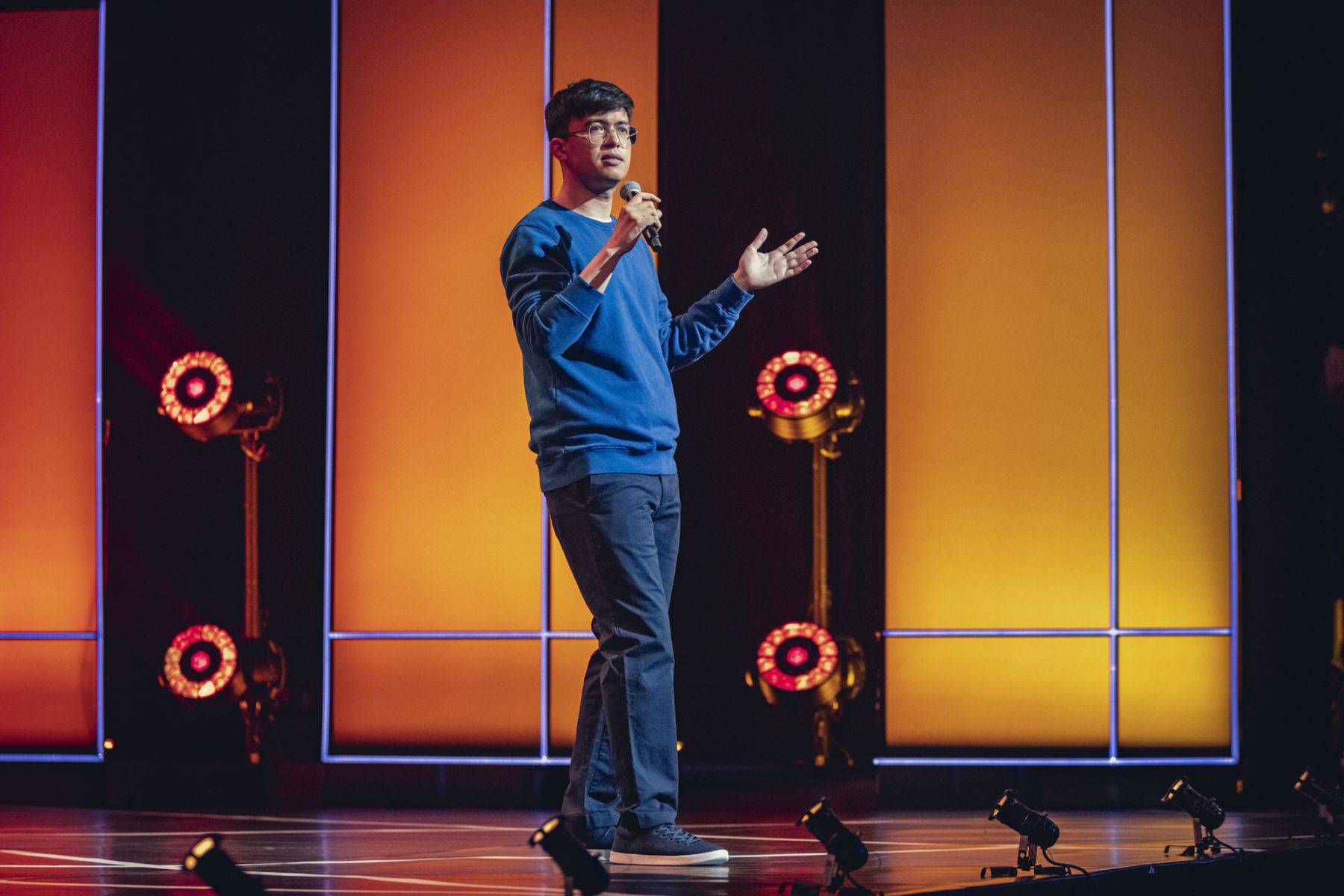Tatler sits down with Phil Wang, one of the biggest rising stars in the British comedy scene, to discuss his comedy career, Malaysian heritage and new book, Sidesplitter.
In the last decade, this British-Malaysian stand-up comedian has been crossing off one career milestone after another—from hosting successful podcasts and appearing in beloved British comedy programmes to starring in his own Netflix special earlier this year, Philly Philly Wang Wang. He has made a name for himself for his unique approach to comedy, offering bold and intelligent dissections of hot button topics—such as race, class and gender—with a side of mischief. He rarely misses an opportunity to poke fun as his last name, which means something quite different in the West.
This month, he celebrates yet another milestone: the release of his new book, Sidesplitter: How To Be From Two Worlds At Once. In this collection of personal anecdotes and short essays, he lets us into his world, which we imagine he would call 'Wang's World'. He shares his experience as a mixed race child—born to a Chinese-Malaysian father and English mother—growing up in Kota Kinabalu, Sabah and England, while commenting on a range of topics from food, comedy and British colonialism.
See also: Comedian Ronny Chieng on Shang-Chi, Asian Representation and More

How did you get into stand-up comedy?
Looking back, the first stand-up show I ever watched was Harith Iskander. My mother brought me along to a conference and he was the entertainment. At the time, I was like, ‘who is this guy talking on stage and being funny?’ I became obsessed with Russell Peters when I was in high school. There were clips of him online, talking about Asian people a lot. I watched loads of them.
Do you remember performing in your first stand-up show?
It was when I first moved to Bath. One of the drama teachers put on a comedy night, where students could do five-minute sets. He was quite surprised I signed up because I was an introvert. I just did five minutes of stolen material from Russell Peters. I swapped out the word ‘Indian’ for ‘Chinese’. I didn’t know how stand-up comedy worked—I thought it was like karaoke.
See also: Jayden Zhang Talks Playing Young Shang-Chi, Acting Alongside Tony Leung and Representation

